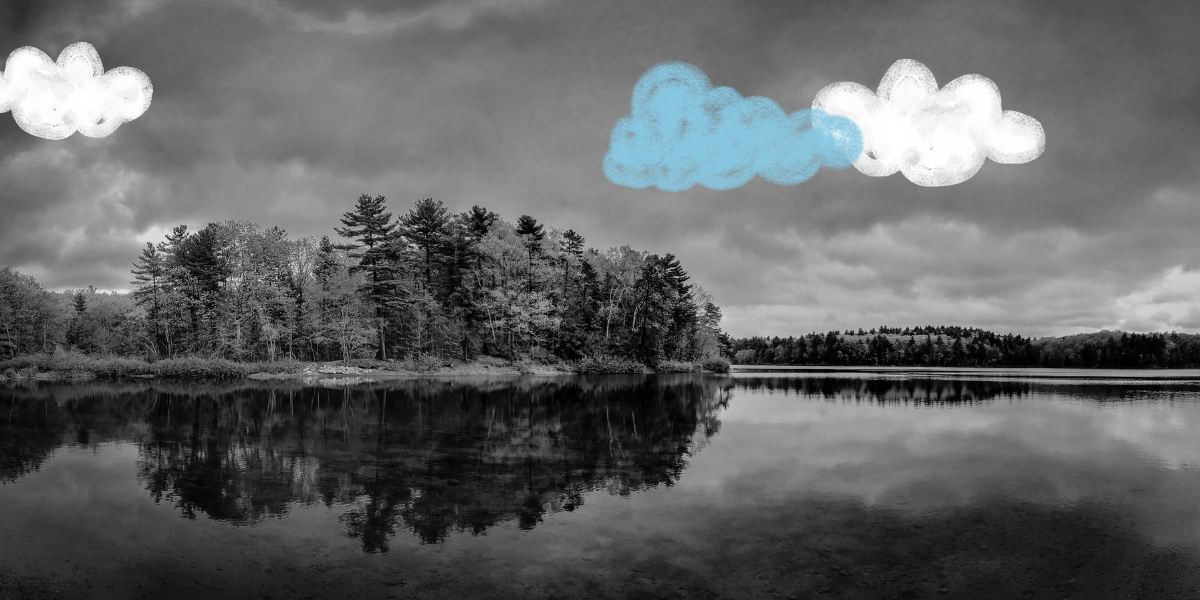The romantic mythology of the hermit is deep within every creative individual. As a writer, the notion is particularly enticing — disappear from view, only to emerge months later with the next once-in-a-generation novel.
But, contrary to popular belief, the legend of the brilliant hermit is likely just that — a legend, an ideal, an archetype, a dream.
Many prolific writers thought to embody the romantic recluse, like William Wordsworth, Henry David Thoreau, and Emily Dickinson, actually defy the stereotype.
A closer study reveals that we, as writers, must live fully present in the world.

These Are Not The Hermits You're Looking For
Take popular poet William Wordsworth. His poetry is full of beautiful odes to the natural world and the thoughts that come to us in solitude. From his poem, "I Wandered Lonely as a Cloud":
That floats on high o'er vales and hills,
When all at once I saw a crowd,
A host, of golden daffodils;
Beside the lake, beneath the trees,
Fluttering and dancing in the breeze.
In vacant or in pensive mood,
They flash upon that inward eye
Which is the bliss of solitude;
And then my heart with pleasure fills,
And dances with the daffodils.
Despite the public’s perception of Wordsworth as a “hermit,” he actually had an active social life and maintained healthy relationships with other writers.
Additionally, he remained active in political and social issues at the time and frequently traveled — aspects of life that greatly impacted his work.
Another famous poet allegedly known for her hermit lifestyle was Emily Dickinson. But Dickinson, too, was active throughout her younger years, maintaining social engagements and continually upholding connections through letter writing.
In fact, it wasn't until Dickinson's later years that she became more reclusive due to mental health issues.
Even Henry David Thoreau only lived in his remote cabin on Walden Pond for two years! In Walden, he wrote:
“I am naturally no hermit, but might possibly sit out the sturdiest frequenter of the bar-room, if my business called me thither.”
To Write, You Must First Live
Not being a writer tucked away from the world isn't enough, though. Classic writers throughout history have attested to the need to get up and live, to experience the world, before sitting down to write about it.
Lost Generation novelist Ernest Hemingway once stated,
"In order to write about life, first you must live it."
Even Thoreau, one of the most famous examples of the writer-hermit archetype, proclaimed,
"How vain it is to sit down to write when you have not stood up to live."
And Mark Twain told us to:
"Write what you know."
Twain's travels and experiences profoundly impacted him and his writing; if he were a hermit, he likely never would have gained the knowledge needed to shape stories around the complex society surrounding him — life during the American Civil War and a rapid time of industrialization and urbanization in America.
Many of the greatest writers of the past few centuries, even those commonly thought of as glorious hermits, rejected the notion that solitude would suddenly lead to great work. At least not without first living.
The Romanticism of Solitude
If the greatest hermit-writers of classic literature were no such thing, why does the romanticism of the idea persist to this day?
The idea likely began during the Romantic era, the late 18th to mid-19th centuries, when certain writers revered individualism. While Wordsworth and Thoreau were indeed among this group, their emphasis on solitude is misunderstood.
Contrary to popular belief, the great poets did not advocate for writers to forsake their friends and family, their other hobbies, their jobs, their entire lives, in pursuit of solitude. Instead, Wordsworth and Thoreau sought to underscore the value of personal time and, indeed, the natural world, as a way to foster a deeper understanding of the world at large and invite inspiration.
Modern-day media has yet to help dispel the myth. Popular films such as Capote show the titular author's isolated lifestyle. Similarly, the novel Big Sur depicts novelist and poet Jack Kerouac relocating to a secluded cabin to work through his process. But, in truth, neither author completely removed themselves from society.
The notion of the lone genius is a legend, and trying to recreate that sort of lifestyle can actually hinder creativity — not to mention mental health.
Building Modern Solitude
While nobody recommends fully withdrawing from society for the sake of writing your book, it’s definitely true that modern writers contend with distraction on a level unknown to Wordsworth and his contemporaries.
Modern technology is better than ever at stealing our attention and keeping it. This means that, in healthy doses, seclusion can benefit the modern writer. Simply removing distractions can help writers concentrate better on their work and allow more significant space to explore ideas.
The good news? You don’t need to move to a cabin in the forest. You just need a Freewrite.
As writers, it's common to feel guilty when we are not writing. It's a little like always having homework. But it's important to remember that even the greats made sure to live.
So don't cancel on your friends. Don't spend every waking moment with your eyes glued to the blank page. Don't sell everything and move to Paris to channel the souls of the Lost Generation.
Live your life.
Live your life, and write about it.





















